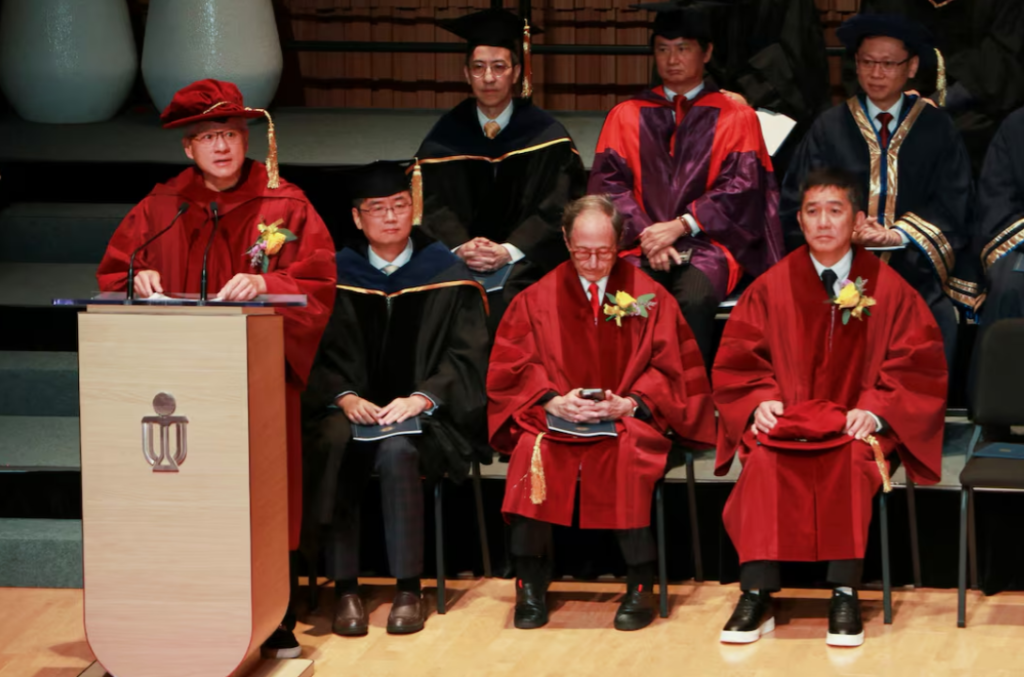Global Tech Collaboration Will Persist, Regardless of Political Shifts
Jensen Huang, CEO of Nvidia, emphasized that global cooperation in technology will continue to thrive, even as the U.S. government tightens export controls on advanced computing products under the incoming administration. Although former President Donald Trump’s policies restricted the sale of U.S. tech to China for national security reasons, these restrictions have been maintained by President Joe Biden. Huang acknowledged that such policies have forced Nvidia to adjust its product lineup for the Chinese market, but he remains optimistic about the future of international collaboration.
During his recent visit to Hong Kong, Huang shared his thoughts on the long-standing tradition of open science and global cooperation. “Scientific and social advancement have always been built on cooperation across math and science,” Huang said. He expressed confidence that despite any political changes, Nvidia will continue to balance compliance with international laws while advancing technology and serving customers worldwide.
The Future of AI and Energy Efficiency
At the heart of Huang’s discussion was the enormous energy consumption required by the computing power behind artificial intelligence (AI). He argued that as AI becomes more pervasive, it is essential to consider the environmental impact and explore sustainable energy solutions. Huang proposed that AI supercomputers be powered by clean, renewable energy sources, possibly located off the main power grid in remote areas. “Using energy for intelligence is the most valuable use of energy we can imagine,” he stated, suggesting that AI could be a driving force for innovations like better carbon storage and more efficient renewable energy designs.
He also pointed out that while AI’s training phase demands significant energy, its real potential lies in inference—the application of AI to real-world problems. AI has the power to revolutionize sectors like energy, transportation, and materials science, offering groundbreaking solutions to some of the world’s most pressing challenges, such as developing new wind turbine designs and more efficient energy storage methods.
The Dawn of the AI Age
In his speech to graduates at the Hong Kong University of Science and Technology, Huang proclaimed that “the age of AI has begun,” calling it a transformative era that will affect every industry and scientific discipline. He reflected on how the rapid advancement of AI and computing power has reshaped industries, making problems that once seemed insurmountable now within reach.
Huang expressed admiration for the current generation of students, noting that they have the tools to advance scientific discovery in ways that were once unimaginable. “The world is resetting,” he said. “You’re at the starting line of an industry being reinvented.” He encouraged graduates to embrace the unprecedented opportunities AI presents, from solving the most challenging problems to transforming every facet of modern life.
AI’s Potential for Solving Global Challenges
Huang also spoke about the vast potential of AI to tackle global challenges, citing examples like enhancing carbon capture and improving clean energy solutions. By leveraging the power of AI, Huang believes that industries can unlock solutions to critical environmental problems and contribute to the creation of a more sustainable future.
“The greatest challenges of our time, which were once unimaginable to overcome, now seem possible with the advent of AI,” Huang concluded, underscoring his belief that AI will be a driving force in shaping the future.



